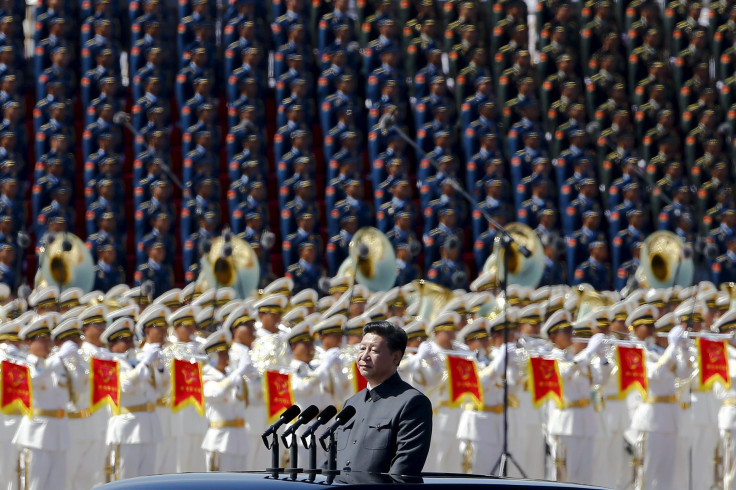Chinese Media Say Xi’s US Visit Will Boost Trust, But Expert Says US Should Not Push Too Far Over South China Sea Dispute

SHANGHAI -- Chinese President Xi Jinping’s visit to the U.S. next week may come against a backdrop of growing tensions between the two countries, over allegations of Chinese hacking and industrial espionage, and U.S. election campaign criticism of Chinese economic protectionism and land reclamation in the South China Sea. Yet, announcing the Sept. 22nd -25th state visit Thursday, Chinese media played up the positives -- headlining comments by Foreign Minister Wang Yi that the visit would “bolster mutual trust, remove suspicion and focus on cooperation.”
Official reports quoted Wang as saying that “warming up to American people” -- via meetings with teachers and students as well as politicians and business people -- would be a major aim of Xi’s trip. Liu Weidong, a U.S. expert at the Chinese Academy of Social Sciences (CASS), told the Global Times that such meetings “are not arranged for every state visit of Chinese leaders,” and were an attempt to tackle “widespread misunderstanding about China” in the U.S.
Xi’s meetings with U.S. Internet companies – including Microsoft in Seattle – have been seen by some observers as an attempt to persuade U.S. businesses to accept increasingly tight Chinese rules on foreign web companies operating in the country. And the country’s new draft law on cyber security has also been criticized by some foreign businesses as being too vague, and undermining their confidence in operating in China. However, Liu said Xi’s visit to Microsoft and Boeing and a forum with investors would “boost [their] confidence in doing business in China after their concerns are heard and China expresses its goodwill toward them.”
While the two sides are currently involved in negotiations on an investment treaty designed to smooth business dealings, President Obama has also called on China to make a commitment to end hacking -- and an editorial in the Global Times acknowledged that there were still “major questions” as to how relations could “remain stable” amid friction and strategic distrust.
However, the paper also said there could be no winners from confrontation, and cooperation was the “only option” for the two countries. It quoted Zhu Feng, an analyst at Nanjing University, as saying it was “necessary for the two heads of state to calm each other down via dialogue” to prevent disputes “being upgraded into conflicts or even regional wars.”
Wu Xinbo, director of the Center for American Studies at Shanghai’s Fudan University, agreed, saying that differences of opinion that could not be resolved should be “separated” from the two countries’ overall relationship, and not be allowed to jeopardize it.
The remarks appear to show that China is anxious to avoid dramatic conflict on a visit that officials see as important for boosting President Xi’s image back home. Yet, as the recent military parade in Beijing celebrating the defeat of Japan in World War II demonstrated, China’s current leadership is also keen to show that the country cannot be easily pushed around. And, in a break from the recent past, when China’s official media tended to downplay disputes, some Chinese language reports Thursday also noted that tensions over the South China Sea – where the U.S. is concerned about China’s reclamation of land in disputed waters -- and cyber security would also be high on the agenda.
Analysts said this was a sign that China was unlikely to make significant compromise on such topics. Liu Weidong of CASS said China should be willing to discuss all issues with the U.S. -- and suggested that the two sides might be able to “formulate rules to restrict cyber attacks to a certain degree”, and reach a "tacit agreement” for China to “guarantee the extent of militarizing reclaimed islands in the South China Sea,” which he said would “satisfy" the U.S. However, he gave no detail of what such guarantees might involve, and added that the US should “agree not to push China too hard” over the South China Sea dispute.
Another commentator quoted in the Global Times accused U.S. scholars and western media of hyping up both this issue and that of cyber security – and criticized the west for “double standards” over China’s reclamation and construction work on the islands, saying that both the Philippines and Vietnam had carried out similar work. He added that the three runways China is believed to have built on the islands could “totally be a civilian facility” and would benefit maritime safety and search and rescue operations. However, he also emphasized that the islands were part of China’s territory, and said it could therefore do as it wished with them.
© Copyright IBTimes 2024. All rights reserved.





















